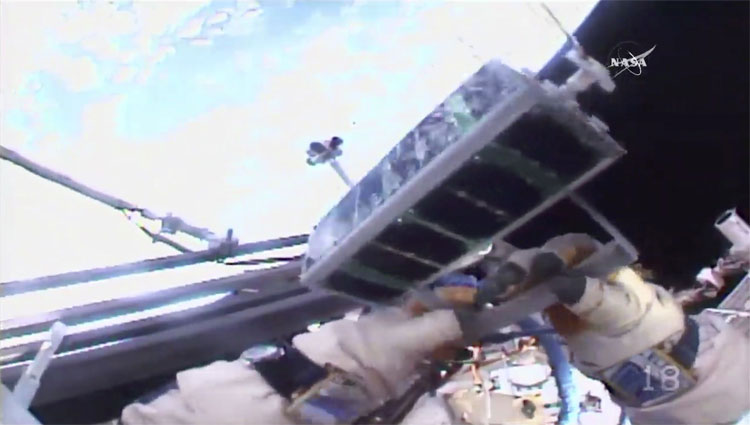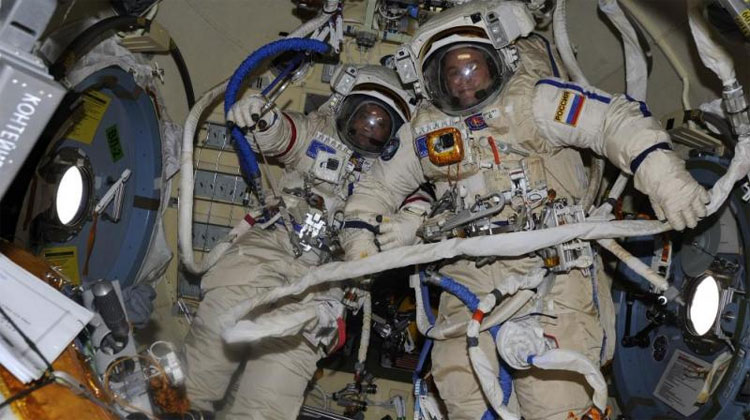The world's first 3D printed satellite was launched from ISS
Two Russian astronauts have launched the world's first satellite made entirely from 3D printers out into space from the ISS International Space Station.
During a recent spacewalk, two Russian astronauts, Fyodor Yurchikhin and Sergey Ryazanskiy , launched a total of five nano satellites, including one entirely made of 3D printers. These micro satellites were in turn launched from the ISS International Space Station.

Astronaut Sergei Ryazansky is holding a mi ni satellite before launching it into space.(Photo: NASA).
The shell of 3D printed satellite is produced from a 3D printer, inside the satellite containing the battery. Researchers want to consider whether the parts created by 3D printers are resistant to zero gravity space.
In addition to conventional electronic devices, 3D satellites also carry greetings sent to Earth in 11 different languages. This special satellite was built by students at Tomsk Polytechnic University in Siberia and brought to the ISS space station last year.
In addition to 3D printed satellites, there are other traditional satellites, each satellite weighs 5-10kg. They will orbit around 5 to 6 months.

Two Russian astronauts, Fyodor Yurchikhin (left) and Sergey Ryazanskiy.
Among them, a satellite was launched to celebrate the 60th anniversary of Russia launching the world's first satellite and a satellite launched to commemorate the 160th anniversary of Konstantin Tsiolkovsky's birth - the father of the Russian rocket industry. The remaining two satellites have positioning and testing functions.
The two astronauts completed the launch of satellites within an hour. However, their trip lasted for more than 7 hours as they had to follow scientific experiments outside ISS.
This is the seventh space walk and the last time this year. The next trip is expected to take place in February 2018.
- America launched a new military satellite
- Successfully launched Measat-3b satellite from Malaysia
- Russia launched a satellite to spy
- Japan launched the first communications satellite
- Indonesia launched its first self-created satellite
- China successfully launched a new map satellite
- Unbelievable applications of 3D printing technology
- Europe launched the first Galileo satellite
- Received the first signal of Galileo satellite
- India successfully launched the RISAT-1 satellite
- China has successfully launched the information satellite
- China launched the moon probe satellite
 Van Allen's belt and evidence that the Apollo 11 mission to the Moon was myth
Van Allen's belt and evidence that the Apollo 11 mission to the Moon was myth The levels of civilization in the universe (Kardashev scale)
The levels of civilization in the universe (Kardashev scale) Today Mars, the sun and the Earth are aligned
Today Mars, the sun and the Earth are aligned The Amazon owner announced a secret plan to build a space base for thousands of people
The Amazon owner announced a secret plan to build a space base for thousands of people